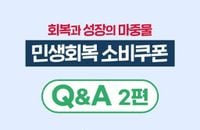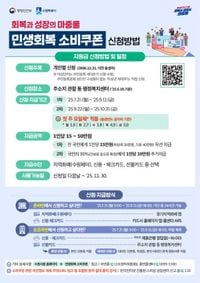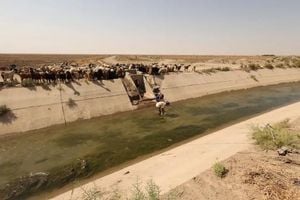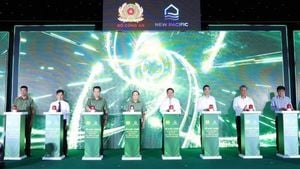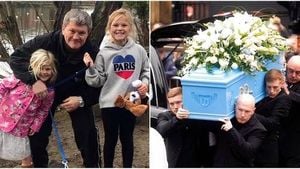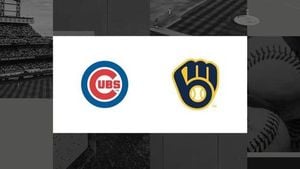Starting July 21, 2025, South Korea launches the first round of its ambitious Livelihood Recovery Consumer Coupon program, aiming to invigorate the economy by boosting spending among all citizens. This initiative is designed to support small businesses and self-employed individuals struggling to recover from economic hardships, with payments varying based on income and residency.
Every eligible citizen will receive a base amount of 150,000 won, but the program recognizes different needs and circumstances. Households classified as lower-income or single-parent families will receive 300,000 won, while basic livelihood security recipients are granted 400,000 won. Additionally, residents outside the metropolitan areas of Seoul, Gyeonggi, and Incheon will receive a 30,000 won bonus, and those living in 84 designated depopulated rural cities and counties will get an extra 50,000 won. This tiered approach aims to address regional disparities and provide targeted relief.
To help citizens navigate the process, the government offers a 'National Secretary Notification Service' accessible through popular platforms such as the Naver app, KakaoTalk, Toss, and the National Secretary Portal. Since July 14, 2025, applicants can sign up to receive personalized information including their payment amount, application methods, usage periods, and eligible regions. Notifications about the first round’s payment details will be sent out on July 19, ahead of the application start date.
The application window for the first round runs from 9 a.m. on July 21 until 6 p.m. on September 12, 2025. Timeliness is crucial, as late applications will not be accepted. To ensure a smooth and orderly process during the first week (July 21-25), a five-day rotation system based on the last digit of the applicant’s birth year will be enforced. For instance, those born in years ending with 1 or 6 can apply on Monday, while those with years ending in 5 or 0 apply on Friday. On weekends, applications are open to all, though offline applications are not accepted on these days.
Application methods vary by payment type. Adults can apply online for credit or check card payments and mobile card-type local love gift certificates under their own names. For minors born after January 1, 2007, applications must be submitted in the name of the household head as registered. Offline applications for credit and check cards are accepted at banks affiliated with the card companies, but only in the applicant’s own name. Meanwhile, prepaid cards and paper or card-type local love gift certificates can be applied for at neighborhood community centers, with provisions allowing proxy applications and receipts. Proper identification is required for all in-person applications, and proxies must present a power of attorney and proof of relationship.
Recognizing that some elderly or disabled citizens may face difficulties applying, a 'Visiting Application Service' will be available starting July 28, 2025. Residents can request a visit by calling their local community center, where officials will assist with the application process directly in their homes or social welfare facilities. However, this service has limitations; if other household members can apply on behalf of the applicant, the visiting service may not be provided to avoid duplication.
Applications for credit and check card payments can be made online from July 21 through various channels including card company websites, apps, call centers, and popular simple payment platforms such as KakaoBank, K-Bank, Toss, KakaoPay, and Naver Pay. For those unable to apply online, visiting affiliated bank branches is an option. Prepaid cards and local love gift certificates are available at neighborhood community centers, with plans to issue them immediately upon application. In cases of shortages, recipients will be notified via text message about when and where to collect their coupons.
Usage of the Livelihood Recovery Consumer Coupons is restricted to small business establishments with annual sales under 3 billion won, excluding certain sectors. Large retailers like department stores, corporate supermarkets, duty-free shops, and large electronics stores are off-limits, as are franchise direct stores. Additionally, entertainment and gambling industries, cash-convertible businesses, and online e-commerce platforms including shopping malls and delivery apps are excluded. This ensures that the coupons directly support local small businesses and stimulate regional economies.
Regionally, the coupons must be used within the area where they were issued. For recipients in special and metropolitan cities—including Sejong and Jeju—the coupons are valid citywide. For those in provincial areas, usage is confined to the city or county of residence. All coupons from both the first and second rounds must be used by November 30, 2025, after which any unused balance will expire and be reclaimed by the government.
The second round of payments, set to begin on September 22 and conclude on October 31, 2025, will target approximately 90% of the population after an income-based selection process using health insurance premiums. This round will provide an additional 100,000 won per eligible person, excluding the top 10% income bracket. Detailed application procedures for this phase will be announced following the completion of recipient selection in September.
Local governments are playing a vital role in facilitating the program. For example, Jeollanam-do province is implementing a 'Visiting Livelihood Coupon Application Service' from July 28 to August 1, 2025, where public officials will personally visit villages and welfare facilities to assist elderly, disabled, and information-vulnerable groups. Seo Eun-soo, head of Jeollanam-do's One-Stop Investment and Resident Policy Bureau, emphasized the importance of careful management and warned citizens to avoid suspicious websites to prevent smishing scams related to the coupons.
Similarly, Suwon Special City has established a dedicated Task Force led by Vice Mayor Kim Hyun-soo to oversee the smooth rollout of the coupon program. The team comprises divisions responsible for overall project management, payment processing, business support, IT, promotion, and citizen inquiries. Suwon will also offer a 'Visiting Application Service' in August for residents with mobility challenges, ensuring no one is left behind in accessing the benefits.
With these comprehensive measures in place, the South Korean government and local authorities are striving to ensure the Livelihood Recovery Consumer Coupon program not only reaches all eligible citizens but also effectively stimulates local economies. The program represents a significant step toward economic recovery, focusing on empowering small businesses and vulnerable populations through targeted financial support.
